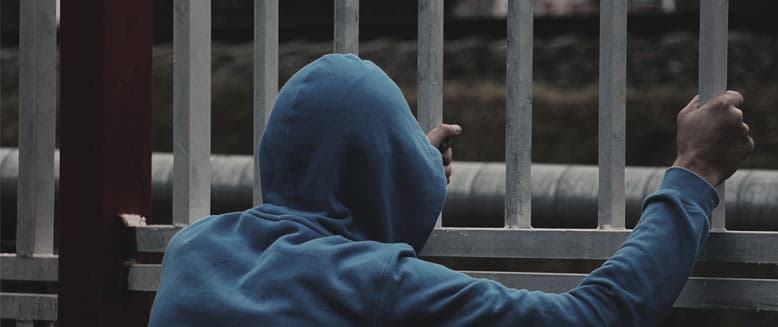The drug war’s previous failures show us that addiction can’t be punished away
Addiction is a complex disease. So complex, that not even modern science, psychology or general logic can explain it.
For over fifty years, the U.S. drug war saw addiction as a moral flaw – a criminal issue. This misconception has very quickly led to hundreds of thousands of Americans being marginalized and countless vain attempts to stop the drug problem.
With the financial costs reaching into the trillions, inmate populations that lead the world and overdose rates increasingly high, politicians and citizens have realized a new approach needs to be taken.
The Zero-Tolerance Approach
The general assumption is that to change problematic behavior, we have to show people it won’t be tolerated and know the consequences. Despite the efforts of our families and law enforcement to stop addiction, this didn’t work.
Much like with many people in their addiction, our government kept taking the same approach, but expected a different result.
First it was prohibition in the 1920s and 1930s, which did nothing to curb America’s drinking habits. Instead, it led to large underground black markets and widespread police corruption.
Law makers started addressing the drug epidemic following the Vietnam War with a zero-tolerance approach, making it known that if you used, you were wrong and would be punished. As years went by, we saw a vast increase in our prison populations, the drug abuse rate didn’t slow down a single bit and new drugs started taking hold.
In the 1980s, Nancy Regan’s “Just Say No” campaign marked the beginning of wide-spread drug hysteria and skyrocketing incarceration rates. The media flooded with overzealous and judgmental anti-drug PSAs and drug laws got much worse. Since Ronald Reagan’s presidency, the number of people incarcerated for drug offenses shot up by 1,000 percent.
Trading Addictions
Since the onset of opiate addiction in America, science has tried to replace addictions, once again, emphasizing drugs as the problem.
Oddly enough, heroin was designed to curb the morphine epidemic in the late 1870s. It was marketed as a safer and less-addictive substitute. Years later, heroin became one of the largest drug epidemics to hit the U.S.
Several decades later, methadone was used to fight the heroin problem. It was seen as a safer alternative. The U.S. government then opened several thousand methadone clinics across the country – to keep them off the streets, away from shady dealers and away from committing crimes.
Unfortunately, this did very little to hinder to heroin epidemic and more Americans inevitably became addicted to methadone, only continuing the cycle.
Drug War Facts
Recent statistics show that our oppressive drug policy has had led disastrous consequences.
- The U.S. government has spent over a trillion dollars on the drug war since its beginning in 1971 (that’s $25 billion a year).
- More people are sent to prison for drug charges every year than property or violent crimes.
- The U.S. represents just five percent of the world’s population but holds roughly a quarter of its inmates, over half which meet the criteria for addiction.
- Since 1999, just years after OxyContin was released in the U.S., prescription opioid-related deaths have quadrupled and heroin use tripled. Currently, opiates kill more people than any other illicit drugs and account for 60 percent of all drug overdoses.
- Alcohol still leads the list as the most dangerous drug, killing more people than any illegal drug.
- In the U.S., there are over 23 million Americans that suffer from addiction and only 10 percent of them get treatment.
- The U.S. started the war on drugs, yet it consumes more than any other country.
-

President, CEO & Founder at Northbound Treatment Network
Paul Alexander is the CEO, President & Founder of Northbound Treatment Network in Newport Beach, California. He believes wholeheartedly in transformational leadership, organizational health and effective, fully integrated substance use disorder and mental health treatment. With over 27 years of experience in behavioral healthcare, Paul has extensive knowledge of “in vivo” treatment modalities, clinical development, operations, strategy, marketing and financial planning. He has been widely recognized for his development of collegiate-based residential treatment programs for students in recovery and authored a research study at The University of California confirming this modality’s effectiveness.
Paul’s comprehensive professional experience, willingness to innovate, and emphasis on organizational health are vital factors in Northbound’s continued success. Paul received his Certified Addiction Treatment Specialist training at Saddleback College in Mission Viejo, CA, and was awarded Outstanding Alumni Service Award in 2002. Paul holds a Bachelor of Arts degree in Criminology, Law and Society, Summa Cum Laude, from University of California, Irvine, and a Juris Doctorate degree from Loyola Law School of Los Angeles. Paul currently serves on The National Association of Addiction Treatment Providers (NAATP) board. In addition, he serves on The Family Recovery Foundation board and The CarePossible board in Orange County; both organizations are committed to raising funds for family recovery and treatment for former military personnel. Paul is in recovery himself and lives in Orange County with his wife Silvana and his two young sons, Noah and Dean.
Politicians are catching on
The numbers have shown that switching to a treatment-based is far more effective. Recidivism rates of prisoners with drug addiction are extremely high, where drug offenders who’ve received treatment showed much higher success rates.
In our latest election, politicians from both sides of the ticket addressed the flaws our country’s oppressive drug policy and promoted treatment over punishment. Other countries have taken such an approach and seen favorable results.
Last November, Surgeon General Viveth Murthy released a 400-plus page report about the addiction crisis in America and outlines several options for improving our outcomes and getting the millions of Americans who suffer from this disease the help they really need.
Call to Action
Our past experience and recent numbers show that trying to punish away drug abuse is completely ineffective and ultimately more harmful. It’s furthered the stigma of addiction and prevents millions of Americans from getting the help they need.
If we want to help, we have to ditch these old ideas and move towards a more compassionate approach that treats addiction as a health problem; not a criminal one.
About Northbound
Northbound is a Joint-Accredited 12 step treatment provider specialized in treating addiction and co-occurring disorders. We offer a various levels of care and evidence-based therapies that support clients through early recovery and help them to safely transition into life after treatment.







